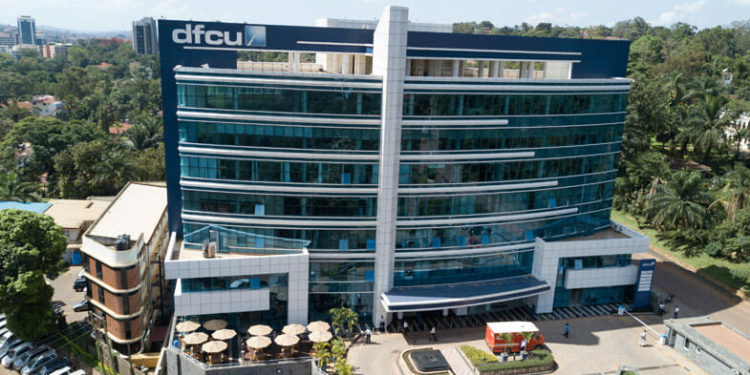By CHIMPREPORTS
dfcu bank is set to defend the process through which it acquired Crane Bank before the English Courts, Chimp Corps report.
This came after Britain’s Supreme Court declined dfcu Bank’s request to appeal the order made last year by the European country’s Court of Appeal that the financial institution’s legal dispute with owners of the defunct Crane Bank be settled through a trial before the English High Court.
This means the legal battle between dfcu and Crane bank will proceed to a trial on the merits and dfcu will have to file its defence.
What happened?
It all started in 2016 when Bank of Uganda, in exercise of its statutory and regulatory powers, took over management of Crane Bank, then closed it and sold off some of its assets and liabilities to dfcu bank at a cost of Shs 200bn.
In December 2020, Crane Bank, which was owned by Sudhir Ruparelia, filed a claim in the English courts challenging the transaction relating to the acquisition, saying the sale of the Bank’s assets and liabilities was at a “gross” undervalue in furtherance of a scheme carried into effect by the BoU using its statutory and regulatory powers.
In response, dfcu filed an application challenging the jurisdiction of the English courts to hear the claim (the Jurisdiction Challenge) on grounds that the actions of the BoU were an act of the State of Uganda exercised in pursuit of the constitutional and statutory powers of BoU, in respect of which an English court should not inquire into.
The English High Court agreed and ruled that the English courts did not have authority to hear the claim.
However, Crane Bank appealed to the UK’s Court of Appeal which ruled on July 26, 2023 that while dfcu and the other Defendants who challenged jurisdiction may be right that the English Court does not have authority to consider the claim, as some of the BoU’s acts may be of a commercial nature and/or there may be public policy reasons why the English Court should decide the claim, this issue should not be decided at a preliminary stage through a jurisdiction challenge but should be determined through a trial.
Angelina Namakula, chief legal officer for dfcu bank, said then that “the English Court of Appeal made no decision on the underlying facts or on the merits of the claim as these issues were not before the court.”
She said the “appeal concerned technical legal questions raised at the preliminary stage and did not deal with the claim on its merits,” adding, “ the “factual allegations will be for the trial judge to determine.”
On 23 August 2023, dfcu applied to UK’s Supreme Court for permission to appeal the Court of Appeal’s decision, a request that was denied.
As Supreme Court has not given permission to appeal, dfcu will now have to raise its objection that the actions of BoU were Foreign Acts of State and therefore cannot be subject to trial in the English Courts.
dfcu lawyers had argued that Crane Bank was seeking to litigate the legality of the acts of a Ugandan government entity – the Bank of Uganda – in the English courts.
Explainer by legal experts
- Does this mean that the allegations made by the Claimants are true?
No. The Supreme Court did not make any factual findings. The factual allegations will be for the trial judge to determine at trial. dfcu strenuously denied the allegations made against it .
- Does this make it more difficult for dfcu to defend the claim?
The Supreme Court did not finally determine whether the English court is entitled to determine the legality of the acts of the Bank of Uganda, it simply held that this is an issue for the trial judge to determine.
- What is the impact of the decision on the Bank’s operations?
dfcu said the outcome of the case had no bearing on the Bank’s day to day operations as litigation was part of normal business. The bank’s lawyers last year said the decision concerned a preliminary matter, and that the Group would continue to vigorously defend itself in the claim.
The Bank said it had a strong financial position with its capital ratios more than 12% above the regulatory thresholds, placing it firmly among the top five most capitalised banks; and was among the first banks to comply with the revised Bank of Uganda minimum core requirements of Shs 150bn by 30th June 2024.
“The Group remains profitable and paid a dividend to its shareholders at the last Annual General Meeting,” said dfcu in a statement last year, emphasising, “The Group has strong shareholders, which include Arise BV, Danish Investment Fund (IFU), National Social Security Fund and Kimberlite, among others.”









Discussion about this post